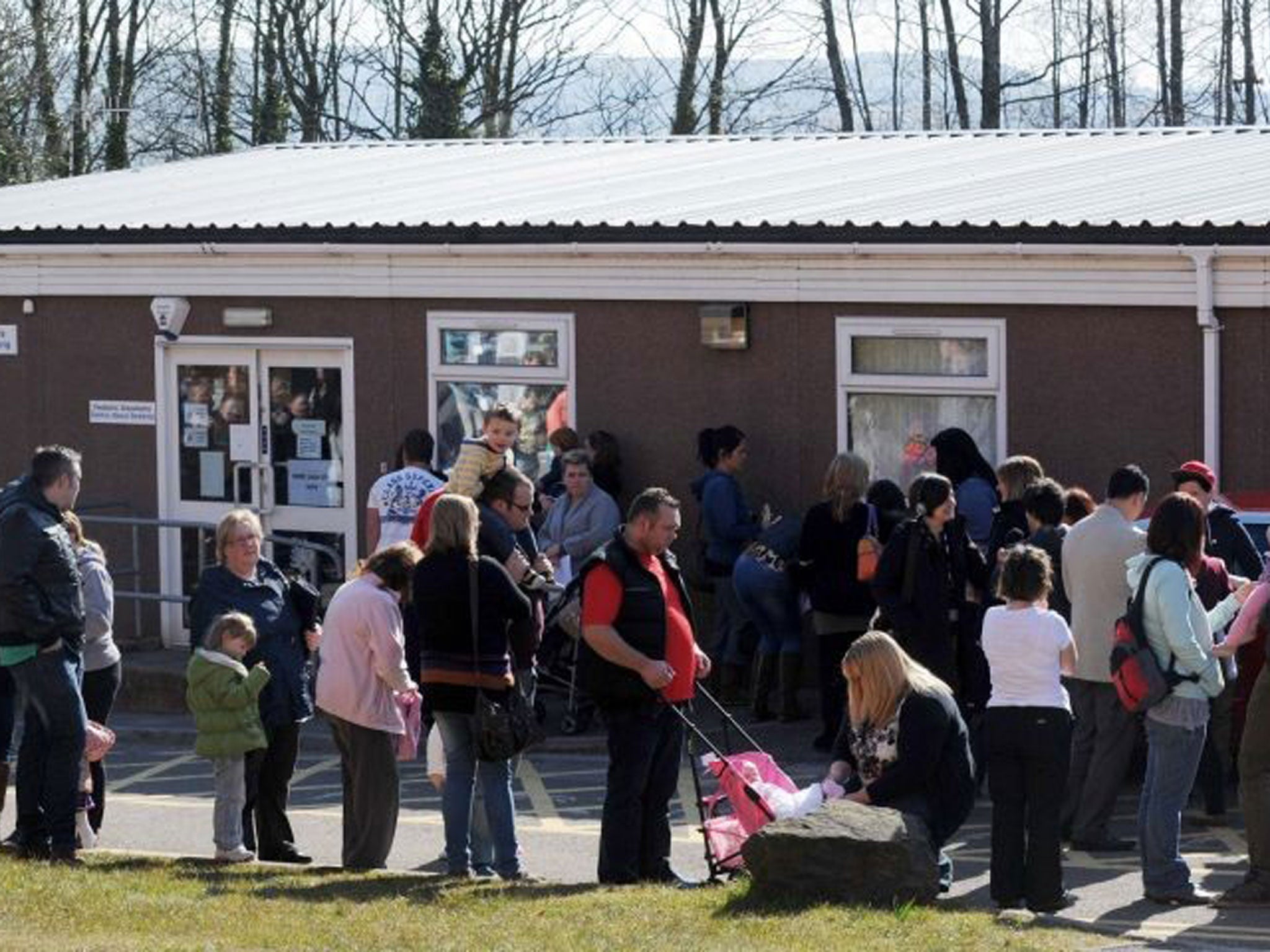Man with measles found dead in Swansea as outbreak grows
Doctors say cause of death uncertain ahead of new scheme to offer MMR jabs in schools

Your support helps us to tell the story
From reproductive rights to climate change to Big Tech, The Independent is on the ground when the story is developing. Whether it's investigating the financials of Elon Musk's pro-Trump PAC or producing our latest documentary, 'The A Word', which shines a light on the American women fighting for reproductive rights, we know how important it is to parse out the facts from the messaging.
At such a critical moment in US history, we need reporters on the ground. Your donation allows us to keep sending journalists to speak to both sides of the story.
The Independent is trusted by Americans across the entire political spectrum. And unlike many other quality news outlets, we choose not to lock Americans out of our reporting and analysis with paywalls. We believe quality journalism should be available to everyone, paid for by those who can afford it.
Your support makes all the difference.A 25-year-old man found dead in a flat in Swansea had measles, health officials have confirmed.
Although further tests were taking place to confirm the cause of death, Dr Marion Lyons, director of health protection at Public Health Wales, said that a diagnosis of measles had been made.
Swansea is at the centre of a growing measles epidemic. If the disease is confirmed as the cause of the man's death, it would be the first confirmed measles fatality in the UK since 2008.
The man, named locally as Gareth Williams, was found dead in a flat on Port Tennant Road on Thursday morning.
"Public Health Wales laboratory tests have today confirmed a diagnosis of measles in a 25-year-old male from Swansea," Dr Lyons said. "The tests confirm only that the deceased man had measles at the time of his death."
She added: "My sympathies are with the family at such a tragic time. Whatever the cause of death, we should not be surprised if, as the outbreak grows, we start to see deaths in Wales."
The Swansea coroner was carrying out further investigations to establish the cause of death yesterday.
More than 800 people have been diagnosed with measles since November. As well as Swansea, cases have also been confirmed in the Neath Port Talbot and Bridgend areas, and elsewhere in mid and west Wales. 77 people have required hospital treatment so far in the outbreak.
MMR jabs are to be offered in schools from this week and Dr Lyons urged parents with unvaccinated children to "make immediate arrangements" for a jab with GPs. However Abertawe Bro Morgannwg health board has described the initial take up of vaccinations in schools as "disappointing".
One in every 1,000 people who contract measles in a developed country will die, health officials say.
"Those not fully vaccinated with two doses of MMR are highly likely to catch measles, which is highly contagious," Dr Lyons said. "We know that there are unprotected people in all age groups but we have particular concerns about the 10 to 18 age group."
"The alarming numbers of cases of measles and continuing spread of the disease in Wales illustrates how vital it is for parents to get their children vaccinated," she added.
Last week around 2,500 people received the MMR vaccine at special clinics across South Wales
Drop-in sessions will be held today [Saturday] at the Morriston and Singleton Hospitals in Swansea, the Princess of Wales Hospital in Bridgend and the Neath Port Talbot Hospital, for the third Saturday in a row.
Globally, measles is one of the most common causes of death in children according to the World Health Organisation. Like other childhood diseases it can be more severe if contracted in adulthood. Symptoms of measles include fever, cold-like symptoms, fatigue, conjunctivitis and a distinctive red-brown rash that appears a few days into the illness.
"Anyone who thinks they or their child may have measles should speak to their GP immediately," Dr Lyons said.
To prevent the spread of the illness, Public Health Wales has issued the following advice:
* If your child is unvaccinated make immediate arrangements with your GP for them to receive the MMR jab. This is even more important if your child has had contact with someone with measles.
* If your child is unwell and you suspect it is measles you should contact your GP. Your child should not attend school or nursery for four days after the rash starts.
* Telephone your GP surgery to inform them you or your child has a rash illness before attending, so that arrangements can be made in advance for minimising contact with other vulnerable patients.
* Avoid going to A&E unless you are seriously ill, and if you do attend, telephone ahead to let them know you or your child may have measles.
* Avoid contact with pregnant women, people with weak immune systems and babies who are too young to be vaccinated, as they are more vulnerable to infection and there are very few treatments available to help them if they do catch measles.
* If any family members are pregnant, receiving chemotherapy, or aged under one, it is vital to ensure that all other family members are up to date with their MMR vaccination.
* Maternity wards, midwives and health visitors are being asked to share information with parents to encourage them to check the vaccination status of all children in the family to avoid further household spread amongst vulnerable groups.
Join our commenting forum
Join thought-provoking conversations, follow other Independent readers and see their replies
Comments